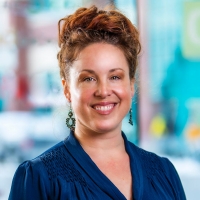Will they listen? Will they get it? Am I even talking about anything anymore?
Reaching out can be scary. Having to articulate your ideas to others – making yourself vulnerable to their feedback – is challenging. But it’s an exciting and necessary step towards developing those ideas and seeing where they might lead.
Somebody will get it. Somebody will care. There are people out there who will support you.
You’re not alone. It just feels that way sometimes.
Into the Void
Anyone who has taken on a large writing project – a book, a thesis, a dissertation – knows how isolating it can be. To counter this, people may seek out public workspaces or writing groups. Conferences and teaching opportunities also offer reprieves from this solitude, but the pandemic has hindered many of these opportunities to gather and we’ve had to be creative.
Virtual platforms only somewhat filled this void. Conferences could proceed without the bother of travel, but it has also meant attending conferences without all the benefits of travel – without coffee breaks and all those other opportunities for networking and discovery. Sure, there were efforts to replicate this experience – some conferences inviting participants to share a glass in scheduled cocktail hours – but it was not the same. There were no free snacks (usually), and we participants were still immersed in our day-to-day lives. Joining from our respective homes and time zones, many of us were bleary-eyed and likely, half-dressed.
The virtual classroom is equally challenging. As an icebreaker, I asked students to explore Taylor Jones’ Dear Photograph and then share a personal photograph and short reflection with the class. In this virtual space, the photographs and voices of each participant felt closer, more intimate. Shyer students were emboldened – encouraged to make free use of the chat option – they and their classmates came alive in the smaller breakout groups. In these less-intimidating spaces, I often found them socializing in ways they were clearly missing during lockdown.
As an instructor, it was difficult when few, if any, had their cameras on. I often wondered if anyone was listening. But the assignments that rolled in – and the students that reached out – reassured me that this seeming void was filled with creative individuals, each struggling to stay engaged.
We’ve all done our best. Together, kinda.
Going Public


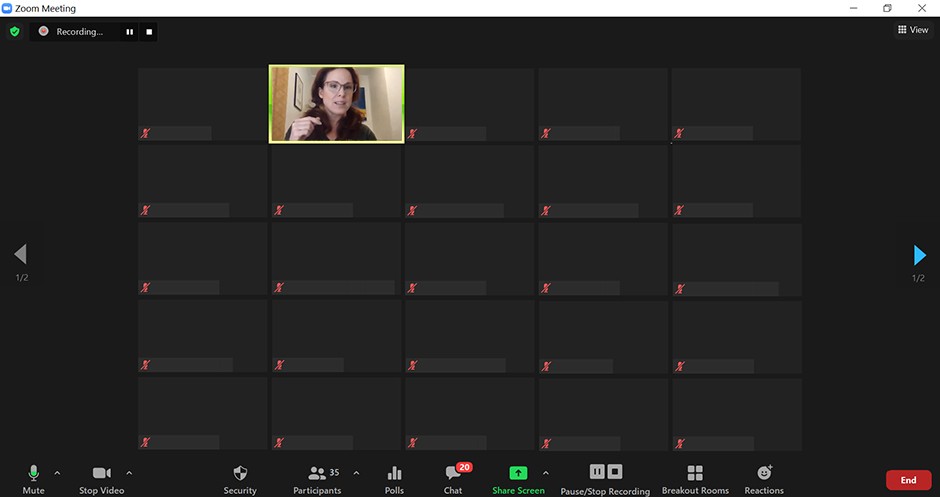 Can you hear me? Zoom 'screenshot' by F. Hamer
Can you hear me? Zoom 'screenshot' by F. Hamer
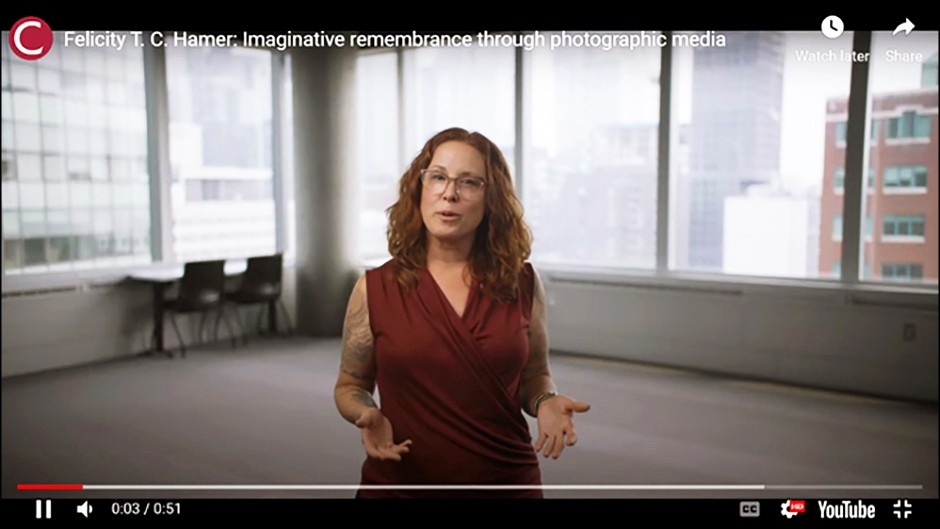 Felicity Hamer: Imaginative remembrance through photographic media. Videographer Robin Pineda Gould.
Felicity Hamer: Imaginative remembrance through photographic media. Videographer Robin Pineda Gould.
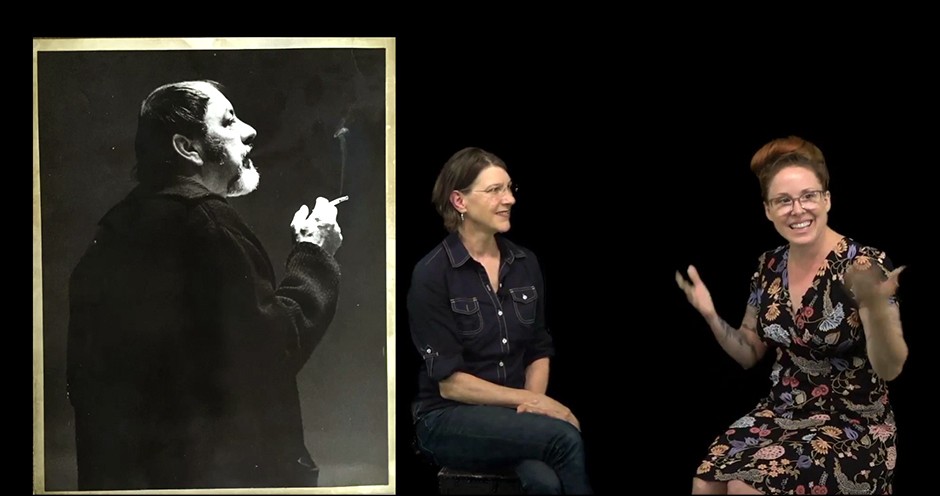 Screenshot, "Rebecca asks Felicity…Can we practice interviewing?," ARTH 388. Videographer Johnny O'Neil.
Screenshot, "Rebecca asks Felicity…Can we practice interviewing?," ARTH 388. Videographer Johnny O'Neil.
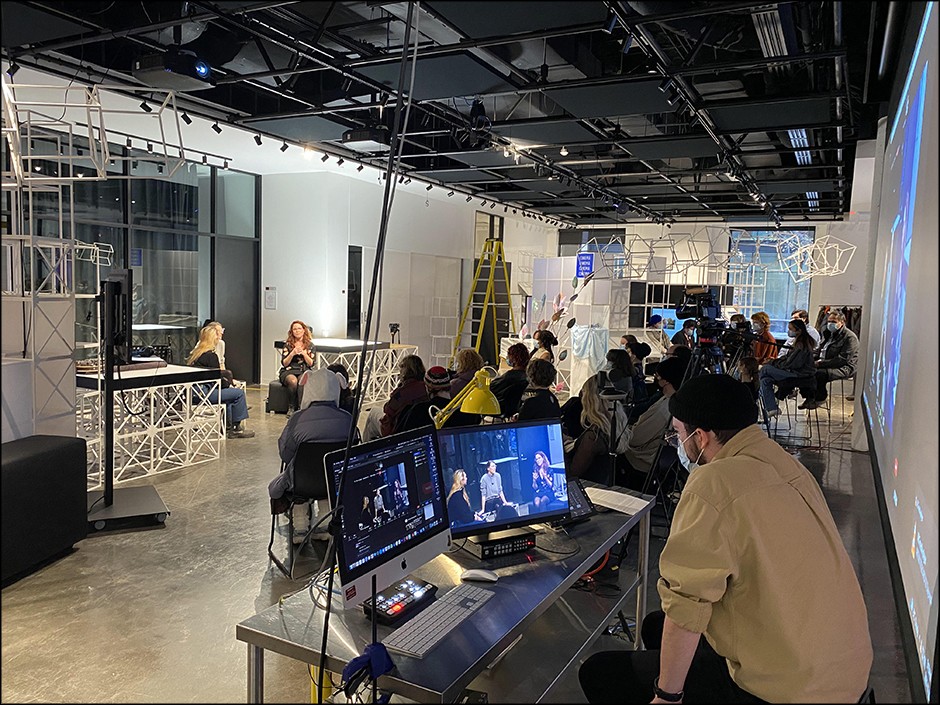 Hauntography: a discussion of the remembered experience through absent photographs, Concordia’s 4TH SPACE, November 23, 2021. Photo by Margaret Lapp.
Hauntography: a discussion of the remembered experience through absent photographs, Concordia’s 4TH SPACE, November 23, 2021. Photo by Margaret Lapp.
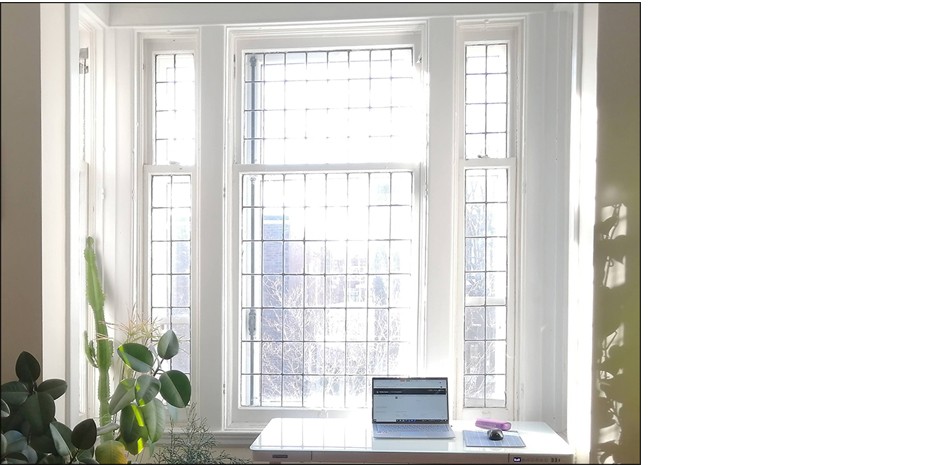 Shhh… I’m dissertating. Photo by F. Hamer.
Shhh… I’m dissertating. Photo by F. Hamer.
